Michael Klar
Robust Learning Under Label Noise With Iterative Noise-Filtering
Jun 01, 2019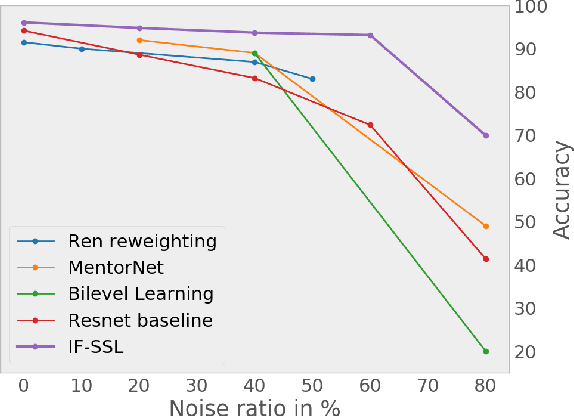
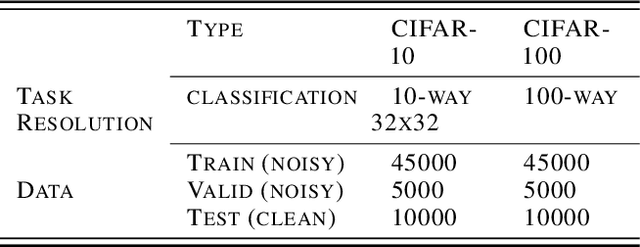
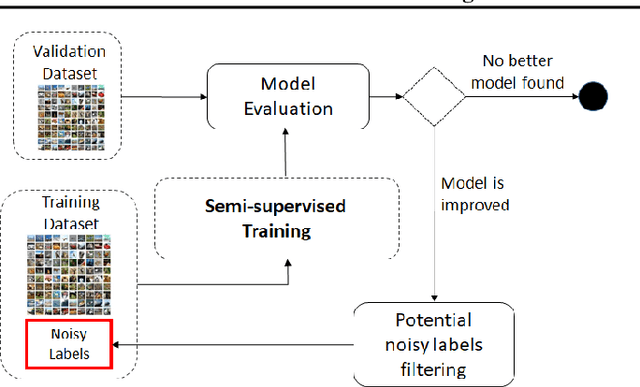
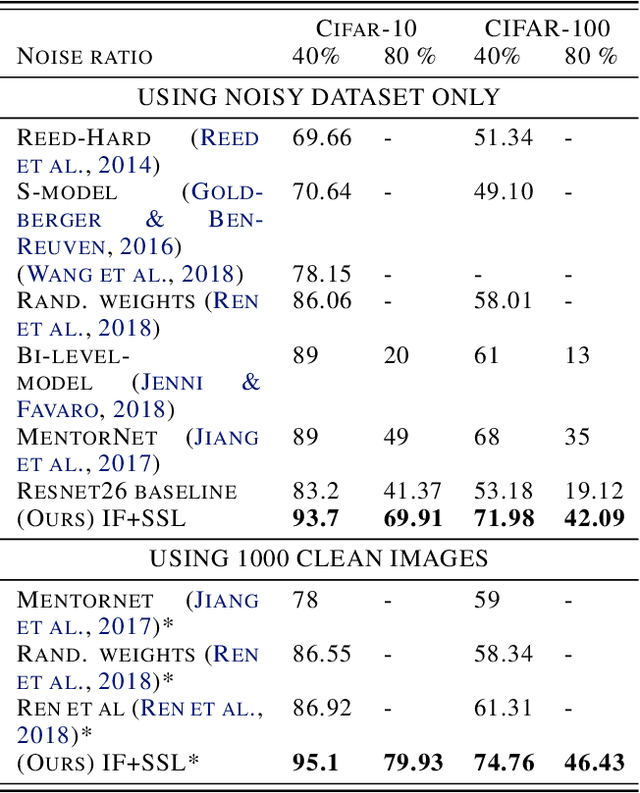
Abstract:We consider the problem of training a model under the presence of label noise. Current approaches identify samples with potentially incorrect labels and reduce their influence on the learning process by either assigning lower weights to them or completely removing them from the training set. In the first case the model however still learns from noisy labels; in the latter approach, good training data can be lost. In this paper, we propose an iterative semi-supervised mechanism for robust learning which excludes noisy labels but is still able to learn from the corresponding samples. To this end, we add an unsupervised loss term that also serves as a regularizer against the remaining label noise. We evaluate our approach on common classification tasks with different noise ratios. Our robust models outperform the state-of-the-art methods by a large margin. Especially for very large noise ratios, we achieve up to 20 % absolute improvement compared to the previous best model.
Consistency-based anomaly detection with adaptive multiple-hypotheses predictions
Oct 31, 2018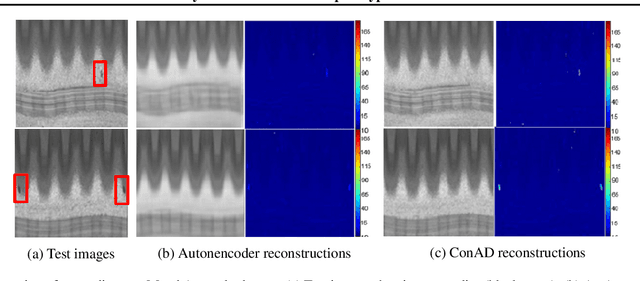
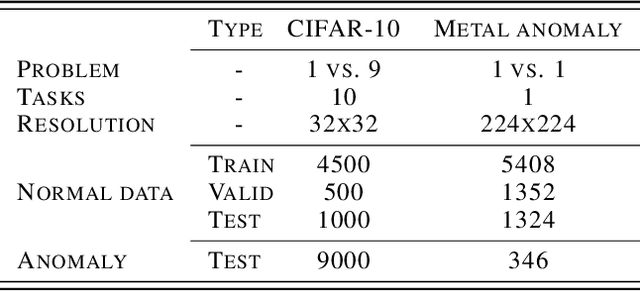

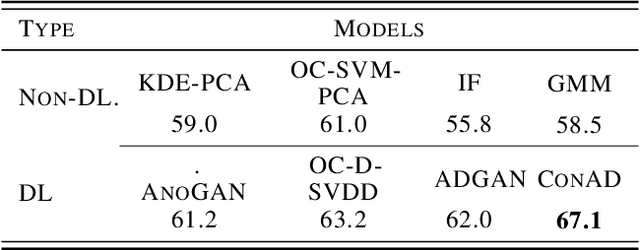
Abstract:In out-of-distribution classification tasks, only some classes - the normal cases - can be modeled with data, whereas the variation of all possible anomalies is too large to be described sufficiently by samples. Thus, the wide-spread discriminative approaches cannot cover such learning tasks and rather generative models, which attempt to learn the input density of the ordinary cases, are used. However, generative models suffer under a large input dimensionality (as in images) and are typically inefficient learners. Motivated by the Local-Outlier-Factor (LOF) method, in this work, we propose to allow the network to directly estimate the local density functions since, for the detection of outliers, the local neighborhood is more important than the global one. At the same time, we retain consistency in the sense that the model must not support areas of the input space that are not covered by samples. Our method allows the model to identify out-of-distribution samples reliably. For the anomaly detection task on CIFAR-10, our ConAD model results in up to 5% points improvement over previously reported results.
 Add to Chrome
Add to Chrome Add to Firefox
Add to Firefox Add to Edge
Add to Edge